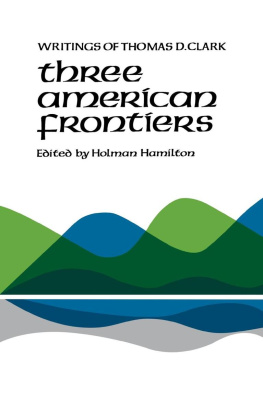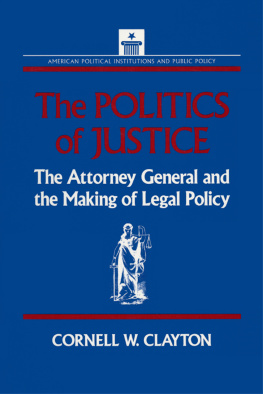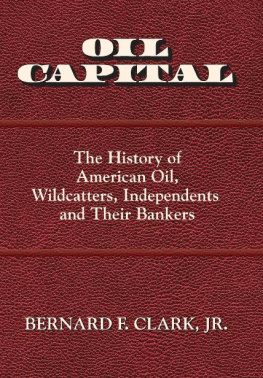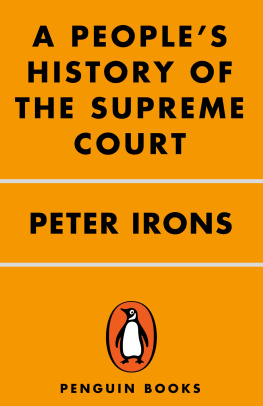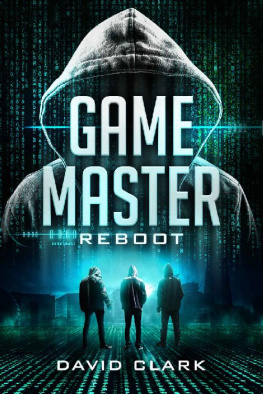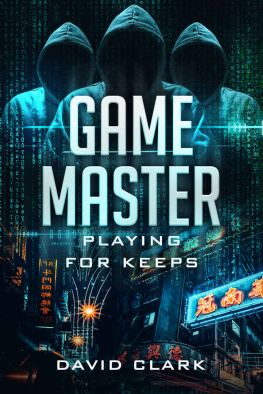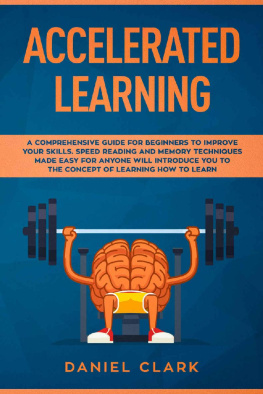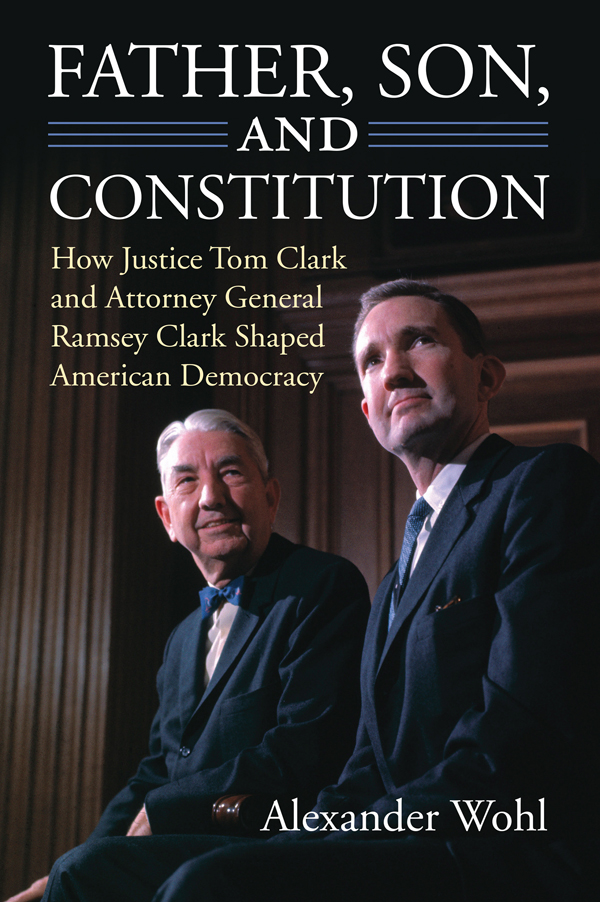Alexander Wohl - Father, Son, and Constitution: How Justice Tom Clark and Attorney General Ramsey Clark Shaped American Democracy
Here you can read online Alexander Wohl - Father, Son, and Constitution: How Justice Tom Clark and Attorney General Ramsey Clark Shaped American Democracy full text of the book (entire story) in english for free. Download pdf and epub, get meaning, cover and reviews about this ebook. year: 2013, publisher: University Press of Kansas, genre: Politics. Description of the work, (preface) as well as reviews are available. Best literature library LitArk.com created for fans of good reading and offers a wide selection of genres:
Romance novel
Science fiction
Adventure
Detective
Science
History
Home and family
Prose
Art
Politics
Computer
Non-fiction
Religion
Business
Children
Humor
Choose a favorite category and find really read worthwhile books. Enjoy immersion in the world of imagination, feel the emotions of the characters or learn something new for yourself, make an fascinating discovery.

- Book:Father, Son, and Constitution: How Justice Tom Clark and Attorney General Ramsey Clark Shaped American Democracy
- Author:
- Publisher:University Press of Kansas
- Genre:
- Year:2013
- Rating:5 / 5
- Favourites:Add to favourites
- Your mark:
Father, Son, and Constitution: How Justice Tom Clark and Attorney General Ramsey Clark Shaped American Democracy: summary, description and annotation
We offer to read an annotation, description, summary or preface (depends on what the author of the book "Father, Son, and Constitution: How Justice Tom Clark and Attorney General Ramsey Clark Shaped American Democracy" wrote himself). If you haven't found the necessary information about the book — write in the comments, we will try to find it.
When Supreme Court Justice Tom Clark resigned his seat on the bench at the youthful age of 67 after 18 years, his decision was unique in the annals of Court history: he was leaving so that his son Ramsey, just nominated as Attorney General, could assume the job Clark himself had once held without conflict of interest.
As Alexander Wohl shows, Tom and Ramsey Clark had a profound impact on American law and society. For nearly three quarters of a century, they influenced presidents, policies, and legal rulings, during careers that tracked closely with some of the most significant and controversial episodes in modern American history. Highlighting their consistent effort to balance individual liberties with government power, Wohl examines how their work reflected the tensions that continue to resonate in todays legal and policy battles.
The two men, however, evolved quite differently. As a young government lawyer, Tom Clark was a key figure in enforcing the relocation of Japanese Americans, and as Attorney General he was vilified by civil liberties advocates for the Cold War policies he implemented, even as he promoted a progressive strategy on civil rights. Ramsey began his career to the ideological left of his father, was intimately involved in enforcement of civil rights laws during the turbulent 1960s, as Attorney General fought to expand protections of individual rights, and as a private attorney represented clients on the farthest reaches of the individual rights-government power spectrum.
A unique approach for understanding our nations history during the second half of the twentieth-century, Wohls study addresses such salient issues as civil rights, free speech, government surveillance and rights of privacy, presidential power, and the role of judges in interpreting the Constitution. The Clarks lives and careers also offer a veritable whos who of 20th-century American law and policy: from Toms close relationships with Harry Truman, Lyndon Johnson, Sam Rayburn, and Earl Warren, to Ramseys connections with Robert Kennedy, LBJ, and Martin Luther King Jr. Both men befriended and battled J. Edgar Hoover and both were targets of political attacktwenty years apartby Richard Nixon.
At its fundamental core, however, Wohls book presents a moving and intimate portrait of a unique father-son relationship that endured through triumph and tribulation and that should appeal to anyone interested in how the personal and the political intertwine in a highly public setting.
Alexander Wohl: author's other books
Who wrote Father, Son, and Constitution: How Justice Tom Clark and Attorney General Ramsey Clark Shaped American Democracy? Find out the surname, the name of the author of the book and a list of all author's works by series.

